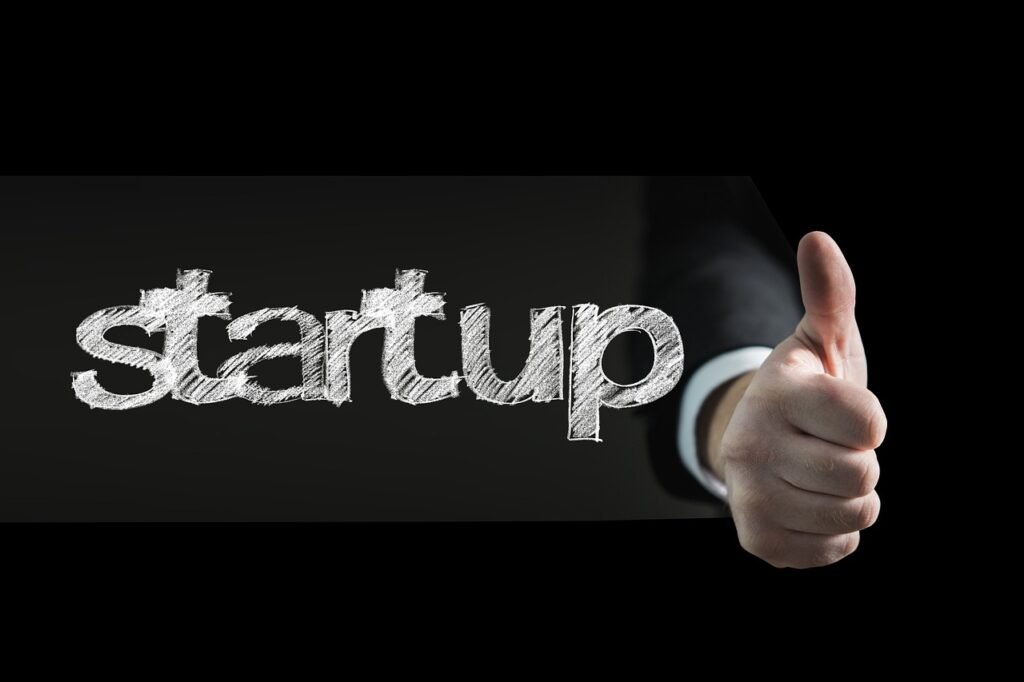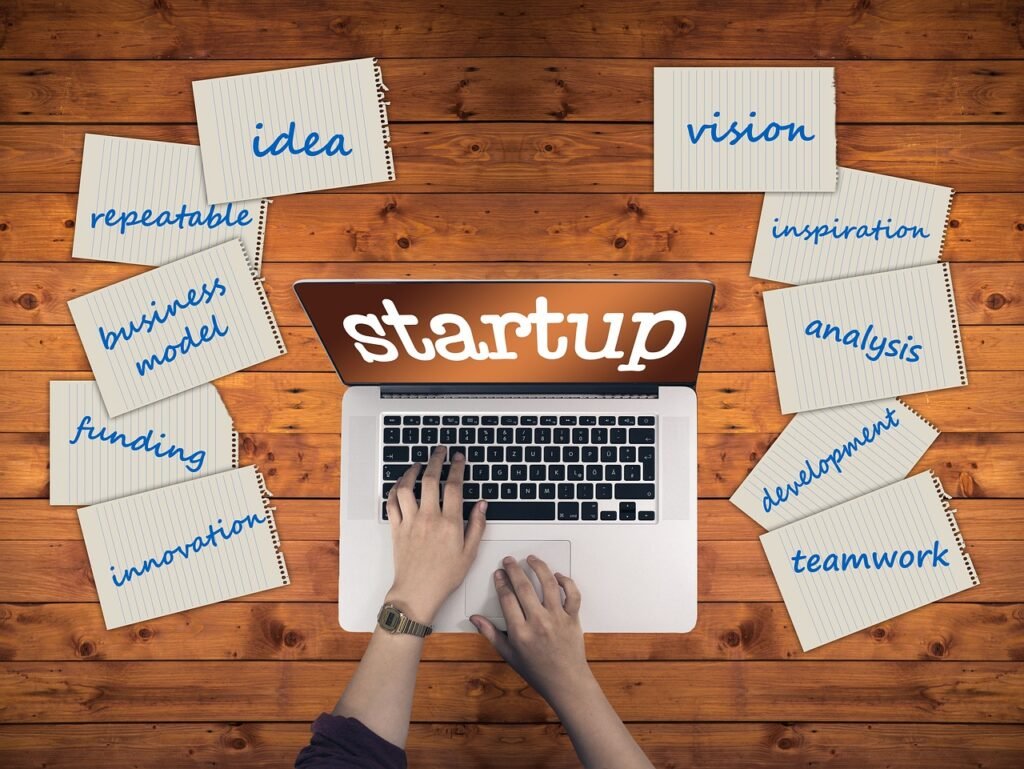The world of entrepreneurship is evolving rapidly, and with advancements in technology, shifting societal trends, and emerging global challenges, new opportunities are opening up for creative and innovative startups. As we approach 2025, there are numerous fields ripe for disruption and new business ventures. Whether driven by advances in artificial intelligence, the need for sustainability, or evolving consumer behaviors, the startups that succeed will be the ones that anticipate the future and solve real-world problems.
In this blog, we’ll explore some of the best startup ideas for 2025, covering a diverse range of industries and highlighting the trends and technologies that will shape the business landscape in the coming years.
1. Sustainable Packaging Solutions
The Problem: Single-use plastic and non-recyclable packaging have contributed significantly to environmental pollution. Consumers and companies are increasingly looking for eco-friendly alternatives that reduce waste and carbon footprints.
The Opportunity: Starting a business focused on sustainable packaging solutions is an excellent way to meet both environmental goals and market demand. Innovating in materials such as biodegradable plastics, reusable packaging, or plant-based alternatives could set your startup apart in the growing green economy.
Why it Will Work in 2025:
- Increasing regulations on plastic use and waste reduction.
- Growing consumer demand for sustainable products.
- Major corporations are committing to zero-waste initiatives.
Examples:
- Companies creating packaging from seaweed, mushrooms, or other biodegradable materials.
- Customizable eco-friendly packaging for the e-commerce and food industries.
- Packaging waste management systems that enable consumers to recycle more effectively.

2. AI-Driven Health and Wellness Solutions
The Problem: The global health and wellness market is growing rapidly, but many existing solutions lack personalization and advanced technology to meet individual needs. Moreover, people are increasingly looking for ways to integrate their mental and physical well-being using technology.
The Opportunity: Launching a startup that provides AI-driven health and wellness services can tap into multiple trends, such as personalized healthcare, mental health solutions, and fitness tracking. These services can include AI-powered personalized diet plans, virtual fitness coaching, or even mental health AI assistants that help users manage stress, anxiety, and emotions in real time.
Why it Will Work in 2025:
- AI technologies will be more capable of providing personalized, actionable health advice.
- Rising interest in preventative healthcare and holistic well-being.
- The ongoing mental health crisis and the growing focus on emotional well-being.
Examples:
- AI-driven fitness apps that adjust workout routines based on user data.
- AI mental health assistants that help people track their moods and suggest coping mechanisms.
- Personalized nutrition platforms that integrate genetic data to create diet plans.
3. Space Tourism and Exploration
The Problem: While space travel has been an aspirational dream for many, only a select few have had the opportunity to experience it. The space tourism industry, however, is gradually transitioning from a niche market to a mainstream sector.
The Opportunity: Starting a business related to space tourism, such as offering suborbital flights, space-themed experiences, or even building space hotels, could become one of the most exciting and high-growth areas of the next decade. As technology advances and more players enter the market, prices will likely drop, opening up space travel to a larger audience.
Why it Will Work in 2025:
- Companies like SpaceX, Blue Origin, and Virgin Galactic are paving the way for commercial space travel.
- Growing interest from wealthy individuals who want to explore space.
- Increased investment and technological developments in space exploration.
Examples:
- Offering suborbital trips to space, where tourists can experience weightlessness.
- Space-themed resorts and hotels in low Earth orbit.
- Space travel agencies providing training, support, and experiences for first-time space travelers.
4. Electric Vehicle (EV) Infrastructure Development
The Problem: As more people transition to electric vehicles, the demand for accessible and reliable charging infrastructure is increasing. However, the current EV charging network remains insufficient in many regions.
The Opportunity: A startup focused on developing EV charging stations, integrating solar power, or even creating mobile EV chargers could capitalize on the growing demand for electric vehicles and the increasing number of electric cars on the road.
Why it Will Work in 2025:
- The shift toward electric vehicles will continue, spurred by government incentives and rising environmental concerns.
- The EV market is set to explode, with more consumers seeking reliable, accessible charging solutions.
- Governments are investing heavily in infrastructure, including EV charging networks.
Examples:
- Creating fast-charging EV stations in underserved areas.
- Partnering with residential buildings or businesses to install EV chargers.
- Offering a mobile app that locates and reserves charging stations.
5. Virtual Reality (VR) Real Estate Experiences
The Problem: Traditional real estate practices can be slow, inefficient, and often require in-person visits. With the rise of digital transformation, people are increasingly seeking ways to make the process of buying or renting properties easier and more interactive.
The Opportunity: Launching a startup that uses virtual reality (VR) to offer immersive property tours, allowing customers to view homes, offices, or commercial spaces remotely, is a powerful business idea. By integrating AI and Augmented Reality (AR), users can have personalized property experiences from anywhere in the world.
Why it Will Work in 2025:
- Increased interest in remote property searching.
- Real estate sales and rental processes are shifting toward digital solutions.
- VR technology will become more affordable and accessible to the average consumer.
Examples:
- Virtual home tours for potential buyers or renters.
- AI-powered VR that tailors property suggestions based on user preferences and lifestyle.
- VR-based real estate training tools for agents and brokers.
6. Digital Privacy and Security Solutions
The Problem: With more people working remotely and sharing personal information online, digital privacy and cybersecurity concerns are at an all-time high. Data breaches and privacy violations are constant threats in today’s digital age.
The Opportunity: A startup focused on digital privacy and cybersecurity solutions that protect personal data, secure communications, and manage online privacy could meet the growing demand for privacy in a hyper-connected world. Services like encrypted messaging apps, privacy-oriented browsing solutions, or decentralized digital identities will be in high demand.
Why it Will Work in 2025:
- Ongoing concerns about data privacy and online surveillance.
- Increased reliance on the digital world for both work and personal life.
- Government regulations on digital privacy (such as GDPR) driving the need for security solutions.
Examples:
- Offering private, secure messaging platforms that don’t store user data.
- Providing tools for secure data storage and sharing.
- Developing encrypted virtual private networks (VPNs) tailored for businesses or individuals.
7. Personalized Education Platforms
The Problem: Traditional education systems often fail to address the unique learning needs of each student. There is a growing demand for educational tools that can offer tailored learning experiences.
The Opportunity: A startup focused on personalized learning platforms using AI, gamification, or adaptive learning technologies can help students of all ages learn more effectively. These platforms can cater to diverse learning styles, from visual to auditory learners, and offer customized pathways for mastery of subjects.
Why it Will Work in 2025:
- Increased demand for online education and self-paced learning.
- Advancements in AI and machine learning enabling personalized education.
- Rising interest in lifelong learning and upskilling in a rapidly changing job market.
Examples:
- Adaptive learning platforms that change based on the student’s progress and areas of struggle.
- AI tutors that can provide personalized feedback and interactive lessons.
- Gamified learning experiences that make education more engaging and effective.

Conclusion: The Future of Startups in 2025
As we look ahead to 2025, the opportunities for innovation and entrepreneurship are boundless. Whether you’re looking to tackle sustainability challenges, enhance health and wellness, or explore the emerging world of space travel, there’s a startup idea for every entrepreneur who is ready to embrace the future.
In the coming years, the startups that will thrive will be the ones that harness cutting-edge technologies, solve pressing societal challenges, and tap into shifting consumer demands. By staying ahead of trends and adapting to new opportunities, you can create a business that not only generates profit but also makes a lasting impact.

